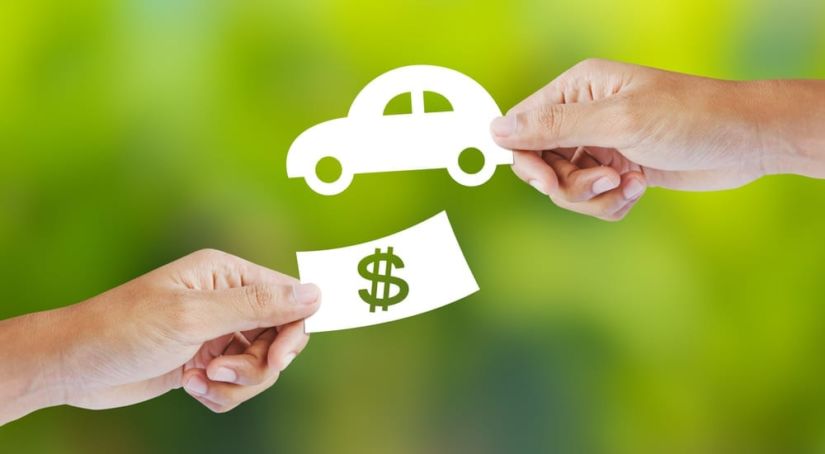Used cars can be a very good investment for car buyers looking for quality at an affordable price. Because the value of a new car diminishes the literal second it is driven off the lot, new cars will never again retain the value that they had before being sold. A used car, even only one or two model years old, will be significantly less than a brand new one. But how, exactly, are used car values determined? How much goes into the estimation process? These questions can be confusing, but we are here to help you navigate the tricky waters of purchasing a new car.
Why Buy a Used Car?
When looking to purchase a vehicle, many people start out looking at pre-owned cars and trucks. The primary reason is financial. Used cars are significantly less expensive than brand new ones. Moreover, many dealerships now offer “certified pre-owned” vehicles. These vehicles have passed dealer inspections to make sure that they are not only roadworthy, but that they offer quality for the price you pay.
One specific demographic that the used or pre-owned car is appealing to is teen drivers; more exactly, the parents of teen drivers. Teens and those starting out behind the wheel for the first time are more likely to get into an accident. Buying a brand new vehicle for a driver with little to no experience could prove extremely costly in the event of a wreck. Moreover, insurance rates for teen drivers in used cars are lower than those in brand new cars. If you are a parent looking for that sweet sixteen birthday car or truck, used cars make more financial sense than a brand new one.
How are Used Car Values Determined?
Ever heard the term “Blue Book” in reference to a car pricing guide? That refers to the Kelley Blue Book, which has been publishing car buyer data since the mid-1920s. They are so readily identified with the used and pre-owned car industry that they really don’t even need the name Kelley anymore. They are like one-named rock stars. They are pretty much the Prince or Madonna of the used car buying world.
While the exact process that Kelley uses is a proprietary one, they do disclose that they use real-time information from vehicle transactions from around the world. These data sets are collected, analyzed and compared on a daily basis from thousands of daily transactions. They calculate prices for individual vehicles on similar transactions, down to make, model, year and even trim. These transactions include wholesale, retail, auction and many more. As you can see, they are very thorough and have been for many decades. It is one of the many reasons they are the most trusted name in used car buying guides.
Used Car Values Versus New Car Values?
One pitfall that consumers often make is going for the cheapest available option. That is not just confined to car buying, either. When you are purchasing anything, you must remember that you are going to get what you pay for. If the product you purchase is insanely cheap, there is usually a reason for that. When buying a vehicle, it is important to remember that quality is more important than most other factors. This is an investment in which you are literally putting the safety of yourself and family. It isn’t like buying generic brand breakfast cereal.
That being said, used cars can still come at very reasonable prices. The average price of a quality used car is around $15,000, compared to the $38,000 average sticker price for a new car. Both numbers have risen in the past few years by similar percentage points. But, when dealing with $15,000 compared to $38,000, those percentage points could mean the difference between hundreds of dollars and thousands of dollars.
Of course, MSRPs for various makes, models, and trims vary significantly. Kia falls on the less expensive side, while Ford is closer to the more expensive end. Sub-compact cars are considerably less expensive, usually well under $20,000. High-performance cars like Porsche skew the curve a lot, at over $90,000. With so many options out there in the new car trade, averages like the ones listed above are just that: averages.
Advantages of Used Cars
While the price disparity is the most glaring, there are actually several advantages to owning a pre-owned car, truck or SUV. With new cars there are a lot of unknown things about performance, comfort, safety, and other aspects. Manufacturers run exhaustive tests and write numerous reports, but you never really know what you are getting. Until you actually drive a new car off the lot and drive it for a while, you are left to depend on the manufacturer’s word on what your new car is capable of.
With used cars, especially ones more than one or two model years old, there is plenty of user-based research and commentary available. These people that have owned or leased these vehicles know firsthand exactly what your next prospective car has going for it. Good and bad, you can easily find reviews and testimonials online. And, if you are looking at a more popular make or model, you will have plenty of reviews to look at. The more popular the vehicle, the more reviews will be out there for it. Furthermore, the dealerships that offer used or pre-owned vehicles have had a working relationship with previous owners. They’ll have in-depth knowledge of these vehicles that they can relate to you.

Vehicle History Reports
Remember those “Show me the Carfax” commercials? It seems like they were once everywhere on television and radio. Companies like Carfax and AutoCheck that issue vehicle history reports do so in an effort to inform the buyer about any and all potential problems with a used car. These range from accidents to major engine work, service and maintenance schedules, and more. If you are buying a used car from an individual, these types of reports can range upwards of $100, but they’ll likely be worth it. Even if it turns out there was nothing wrong with the vehicle, this nominal fee purchases piece of mind. However, if you are working with a dealership, the dealership will sometimes cover the cost of the report and you can get them for free. That isn’t always the case and you generally have to ask for it, but it is a good thing to keep in mind.
Go See Your Local Used Car Dealer
If you are in the market for a used vehicle, you are most certainly not alone. Nearly three-fourths of all vehicles purchased in the United States each year are of the used variety. These include individual sales, cars from rental companies, leases that have expired, auctions and, of course, dealership sales. The used car market is flourishing and shows no signs of slowing down.
I will concede that there is one benefit of having a new car that used cars just cannot offer: the new car smell. Dealerships have tried to emulate it with sprays and air fresheners, but it just isn’t the same thing. That scent, however appealing it is, should not be a deal breaker for you, though. Go down to your local dealership or two and check out the wide array of used cars available. They are more cost effective and have a history of satisfying previous owners. Maybe, by the time you get there, someone will have invented a fake new car smell that actually works like the real thing.



